1. Vatican City: The World’s Smallest Country
Vatican City is a unique entity, often referred to as a “sovereign city-state.” Despite its diminutive size of just 0.44 square kilometers, it holds the distinction of being the smallest internationally recognized independent state in Europe and one of the tiniest in the world.
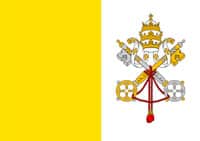
Interestingly, Vatican City is not merely a country, but a country within a city. It is entirely contained within the boundaries of Rome, the capital of Italy. In fact, it is so small that it would struggle to qualify even as a suburb of the larger city that surrounds it. This gives a clear sense of the sheer scale of the difference between the two.
The head of state and government of Vatican City is the Pope, who serves as the Bishop of Rome and the leader
of the Catholic Church. The permanent population of this miniature nation is around 800 people, the majority of whom are clergy or staff members who support the operations of the Vatican and the Holy See.
2. Monaco: The Glittering Principality of Luxury and Gambling
Monaco has earned global renown as the epicenter of luxury, opulence, and gambling in Europe. Despite its diminutive size of just 1.95 square kilometers, this principality packs a punch when it comes to its reputation for extravagance and high-stakes entertainment.

Formally known as the Principality of Monaco, this sovereign city-state shares a unique similarity with Vatican City in its political structure. However, unlike its counterpart, Monaco is entirely surrounded by France while still maintaining access to the Mediterranean Sea.
At the helm of this glittering nation stands the Prince of Monaco, the head of state presiding over a population of approximately 38,000 people. The principality’s small size belies its outsized influence and global recognition, thanks in large part to its association with luxury brands, high-end casinos, and the glamorous lifestyles of its residents and visitors alike.
3. San Marino: The World’s Oldest Sovereign State and Constitutional Republic
The Republic of San Marino stands out as a remarkable entity, boasting the distinction of being the oldest surviving sovereign state and constitutional republic globally.
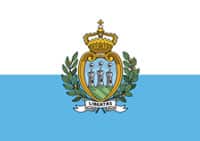
Despite its compact size of just 61 square kilometers, San Marino’s rich history and unique political structure set it apart from other nations. This enclaved microstate is nestled within Italy, yet maintains its independence and sovereignty. With a population of approximately 31,000 people, San Marino’s small size is offset by its significant historical and political importance. Its enduring legacy as the world’s oldest surviving sovereign state and constitutional republic makes it a fascinating and unique nation.
4. Liechtenstein: A Small but Affluent Nation with a Complex Tax Reputation
The Principality of Liechtenstein, covering a modest 160 square kilometers, is home to a population of approximately 37,000 people. This tiny nation boasts an impressive distinction: it has the highest gross domestic product per capita globally, underscoring its remarkable economic prosperity.
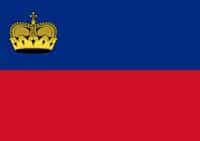
However, Liechtenstein’s financial landscape has historically been shrouded in controversy, earning it the reputation of a tax haven. This label has been fueled by the country’s attractiveness to individuals seeking to minimize their tax liabilities. Recently, a significant development has shaken the foundations of this reputation: the leak of names of tax avoiders who have utilized Liechtenstein’s financial services. This incident appears to have prompted Liechtenstein to reevaluate its stance and distance itself from its former tax haven status, embracing a more transparent and cooperative approach to taxation
5. Malta: A Picturesque Archipelago in the Mediterranean
The island nation of Malta is composed of three distinct islands situated in the heart of the Mediterranean Sea, south of Sicily. This archipelago consists of the main island of Malta, along with the smaller islands of Gozo and Comino. Blessed with a mild climate year-round, Malta’s strategic location and favorable weather conditions make it an attractive destination for visitors and residents alike.

Spanning an area of 316 square kilometers, Malta is home to a population of approximately 418,000 citizens. The nation’s capital, Valletta, is a historic city that serves as the seat of government and a cultural hub. Despite its significance, Valletta’s population is relatively small, with around 7,000 residents calling the city home.
Malta’s unique geography, comprising three distinct islands, contributes to its charm and diversity. From the main island’s bustling cities to the tranquil landscapes of Gozo and the pristine beaches of Comino, Malta offers a range of experiences for those who visit or call it home.
6. Andorra: A Tax-Friendly Haven in the Pyrenees
Nestled in the heart of the Pyrenees Mountains, Andorra straddles the border between Spain and France, boasting a population of approximately 85,000 people. This small but strategically located nation has long been renowned for its attractive fiscal environment, earning it a reputation as a tax haven. The absence of certain taxes, combined with its duty-free status, makes Andorra a shopper’s paradise, particularly for those seeking bargains on luxury goods.
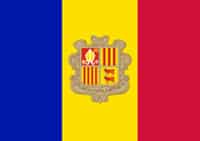
Beyond its financial allure, Andorra is also celebrated for its world-class ski resorts, which attract winter sports enthusiasts from around the globe. With a land area of 468 square kilometers, Andorra’s compact size belies its rich history, having maintained its independence as a principality since 1278. This unique blend of fiscal advantages, natural beauty, and sporting opportunities has cemented Andorra’s status as a popular destination for tourists and a coveted location for international businesses.
7. Luxembourg: A Multilingual Grand Duchy at the Crossroads of Europe
Luxembourg, a Grand Duchy located at the crossroads of France, Belgium, and Germany, spans an area of 2,586 square kilometers. This landlocked nation is home to approximately 530,000 residents, making it a vibrant and diverse cultural hub in the heart of Europe.

One of Luxembourg’s distinctive features is its linguistic diversity, with three official languages: French, German, and Luxembourgish. This multilingual environment reflects the country’s rich history and its position as a meeting point of different cultures and traditions. The coexistence of these languages adds to the unique charm and cosmopolitan character of Luxembourg, enhancing its appeal as a dynamic and inclusive society.
8. Cyprus: An Island of Contrasts, History, and Natural Beauty
The island nation of Cyprus, situated off the southern coast of Turkey, spans an impressive 9,251 square kilometers. This Mediterranean gem has a rich and complex history, marked by a tumultuous past that saw tensions between Turkey and Greece vying for control over the island.
Despite the challenges of its recent history, Cyprus has emerged as a relatively peaceful and prosperous country, attracting visitors from around the world who are drawn to its diverse offerings.
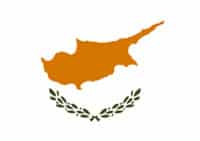
As a tourist mecca, the island boasts an abundance of ancient monuments and archaeological sites, catering to the interests of history enthusiasts. Complementing its cultural riches, Cyprus also lays claim to some of the most stunning beaches in the Mediterranean, making it a premier destination for sun-seekers and beach lovers. One of the unique features of Cyprus is the demilitarized zone, a border that separates the Turkish and Greek areas of the island. This intriguing divide offers visitors a chance to witness firsthand the legacy of the island’s turbulent past and the ongoing efforts to reconcile its divided communities.
9. Kosovo: Europe’s Newest Nation Embracing Tourism and Diversity
As of the time of writing, Kosovo holds the distinction of being the newest country in Europe, spanning an area of 10,887 square kilometers, making it the second-largest among the group of newly formed nations. In 2008, Kosovo seceded from Serbia, although its independence is not recognized by Russia and Serbia itself.
Despite the complex political circumstances surrounding its formation, Kosovo has embraced a welcoming and friendly attitude towards tourists.
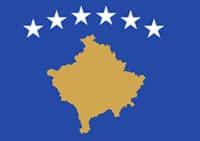
The country’s population is predominantly Albanian, and visitors are often struck by the warmth and hospitality of the locals. Kosovo’s official languages are Albanian and Serbian, reflecting the diversity of its population. However, many of the country’s younger citizens have a good understanding of English, making communication easier for international visitors.
As Kosovo continues to establish itself on the global stage, it offers a unique opportunity for travelers to explore a destination that is still relatively untouched by mass tourism. With its rich cultural heritage, stunning landscapes, and friendly people, Kosovo is poised to become an increasingly popular destination for those seeking to discover a lesser-known corner of Europe.
10. Montenegro: A Compact Gem Offering Diverse Landscapes and Experiences
Montenegro, a former member of the Yugoslav republic, is a small country that packs a punch when it comes to natural beauty and diversity. Spanning an area of 13,812 square kilometers, it is the largest among the group of newly formed nations that emerged from the dissolution of Yugoslavia.
Nestled along the stunning Adriatic coastline, Montenegro offers visitors a unique opportunity to experience the best of both worlds.
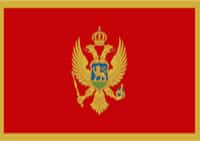
One moment, you can be dipping your toes in the crystal-clear waters of the Adriatic Sea, and in just a short drive, you can find yourself on the slopes of snow-capped mountains, ready to hit the ski runs.
This compact country is a true gem, offering a perfect blend of stunning beaches, rugged mountains, and a rich cultural heritage. Montenegro’s natural beauty is complemented by its friendly people and a growing tourism industry that is working to showcase the country’s many charms to the world.
Whether you’re seeking a relaxing beach vacation, an adventure-filled mountain getaway, or a chance to immerse yourself in a fascinating history and culture, Montenegro is a destination that is sure to leave a lasting impression on all who visit.
11. Bonus country: Liberland, A Unique Microstate Embracing Freedom and Innovation
Liberland, a self-proclaimed microstate, is a distinctive entity that prides itself on principles of freedom, innovation, and self-governance. With an area of approximately 7 square kilometers, this nascent nation is situated along the Danube River, between Croatia and Serbia.
Founded in 2015 by Czech politician and activist Vit Jedlicka, Liberland represents a bold experiment in governance and individual liberty. Despite its small size, Liberland has garnered international attention for its commitment to personal freedoms, digital innovation, and a decentralized approach to governance.
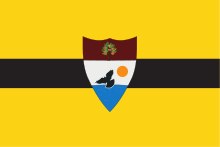
The population of Liberland is small but growing, with individuals from diverse backgrounds drawn to the promise of a new kind of statehood. English is the primary language spoken in Liberland, reflecting its international outlook and appeal to a global community of like-minded individuals.
As Liberland continues to evolve and establish its place on the world stage, it offers a unique opportunity for those who value freedom, innovation, and the spirit of exploration to be part of a pioneering experiment in modern statecraft.
Liberland.
What do you realize? What do all these countries share and have in common?
1. Low Taxes!
Most of them are considered tax heavens. They don’t tax their citizens to death. Some of these countries have a tax rate of zero.
2. No Wars!
Most of these countries are not very eager to fight wars. A small country values its citizens. In a big country, a citizen is always expendable.
Example Liechtenstein. Liechtenstein goes to war. They left with 80 men and came back with 81. They made a new friend.
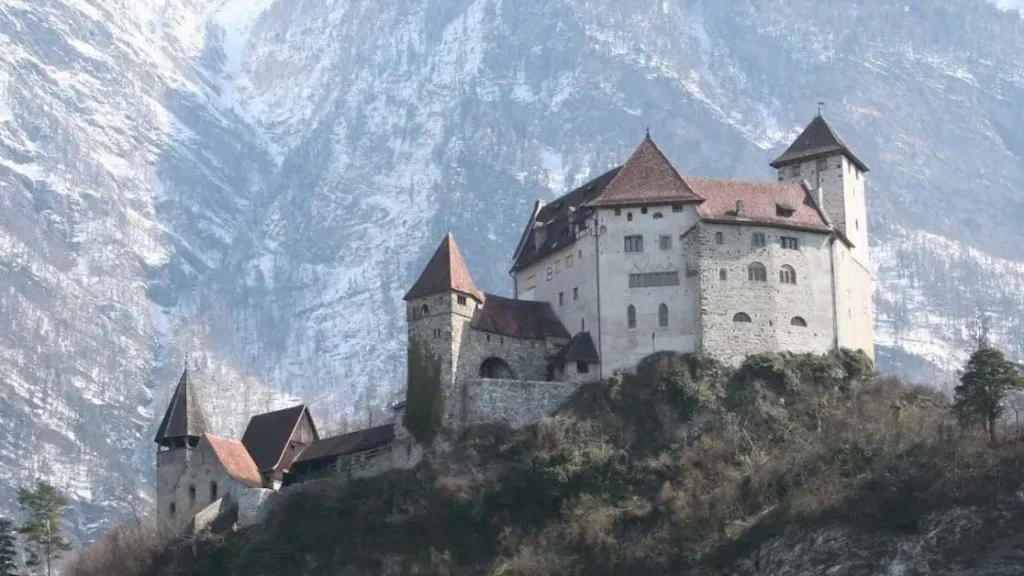
In 1868, after the Confederation dissolved, Liechtenstein disbanded its army of 80 men and declared its permanent neutrality, which was respected during both World Wars. The Liechtenstein army had a successful time in World War I, the 80 men were sent to guard a little used Italian mountain pass and saw almost no action. On their march home, they befriended an Austrian who they took back to Vaduz with them, arriving in Liechtenstein a stronger force than when they had left.
3. Desirable Passports.
All of these countries have very desirable passports, often very hard to get. Kosovo may have its own problems, but again:
Taxes in Kosovo: Taxpayer with gross annual income over 50,000€ and those who have voluntary opted to be taxed on real income, are taxed with the rate of 10%, and the taxpayers with annual gross income of 50,000€ or less, are taxed with 3% on gross income (for the activities of: trade, transport, agriculture and similar commercial activities) or 9% (for the activities of: services, professional, artisanal, entertainment and similar activities).
Montenegro, a former part of Yugoslavia, is a very interesting place. It is still possible to get residency there and get naturalized there. But the former Golden Passport program is under pressure from the EU
The EC has consistently advised Montenegro to abolish the investor citizenship scheme due to the risks it poses (such as money laundering, tax evasion, terrorist financing, corruption and organized crime infiltration). In the 4th report of the Visa Suspension Mechanism, the Commission recommended that Montenegro abolish the investor citizenship scheme as soon as possible”, said Pisonero Hernandez.
We will soon write more details about residency in Montenegro.
Please also see the following Amazon links:
What is your backup plan? Talk to Us.